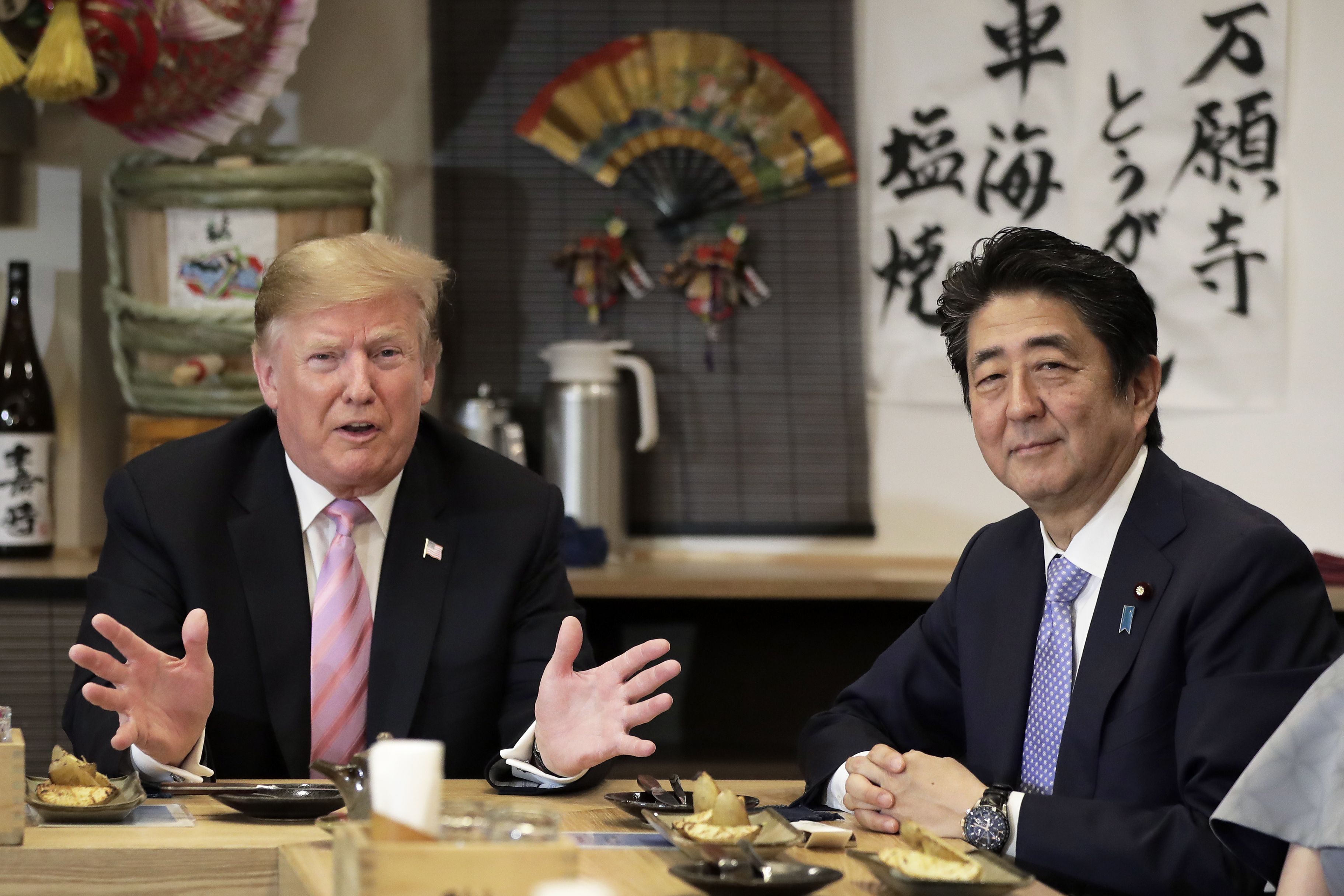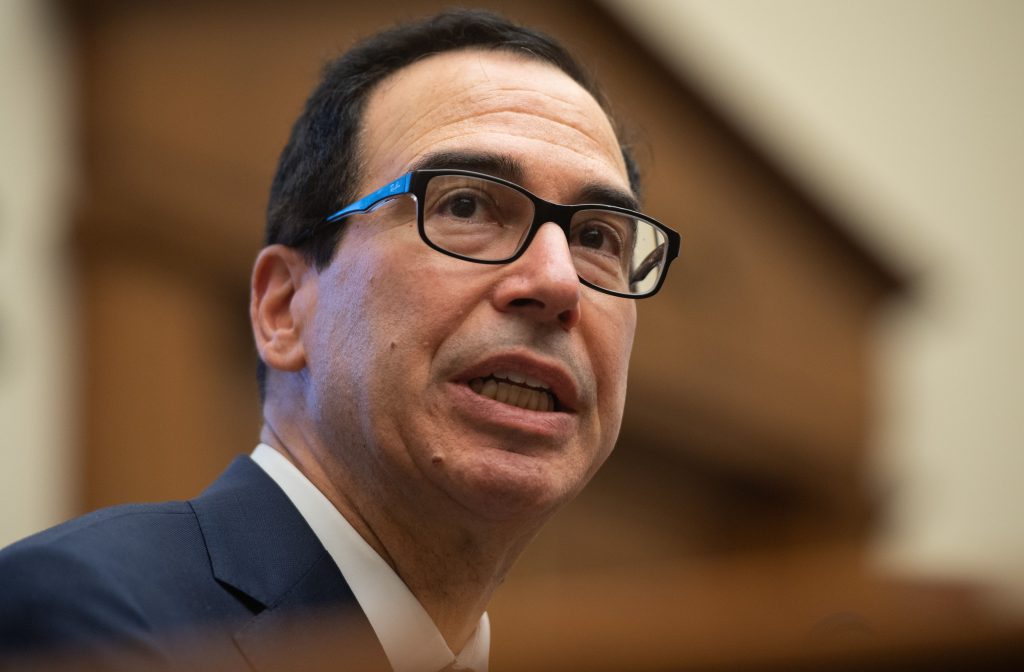
U.S. President Donald Trump speaks with Shinzo Abe, Japan’s prime minister, during a dinner on May 26, 2019 in Tokyo, Japan.
Kiyoshi Ota | Getty Images News
Japanese Prime Minister Shinzo Abe finds himself in a tough spot as he readies for a visit to Iran.
Abe, who has sought to deflect U.S. President Donald Trump’s protectionist and isolationist instincts, is expected to make a rare trip to the Middle Eastern country this month. That comes just as Trump has increased pressure on Tehran and those who deal with it.
Japan has long maintained cordial relations with Iran in part because of its status as a major power and crude supplier in the Persian Gulf, which is the major source of oil for the world’s third-largest economy.
But Tokyo depends on the United States for security, so it has tread carefully in the wake of Iran’s 1979 Islamic Revolution that turned the country from U.S. ally under the shah to adversary under the ayatollahs.
“Japan’s energy policy towards Iran has been an area of struggle for independence from the United States for four decades,” Sachi Sakanashi, senior research fellow at the Institute of Energy Economics, Japan, wrote in January on the Atlantic Council’s IranSource blog.
“Even when Japan tried to pursue its own energy policy towards Iran, the U.S. has generally had the final say,” Sakanashi wrote.
Despite cordial relations, Japan-Iran summits are rare. The last Japanese prime minister to visit Iran was Takeo Fukuda in 1978. Former Iranian President Mohammad Khatami visited Japan in 2000, the first journey by an Iranian head of government in 42 years, according to the Japanese foreign ministry website.
Contacted by CNBC on Tuesday, Sakanashi said that Japan gets 85% of its oil and 28% of its natural gas from the Persian Gulf.
“So the stability of the Persian Gulf region is really important for Japan,” she said, adding that Abe likely wants “to do something utilizing Japan’s traditionally good relations with Iran.”
‘Actual confrontation’
Trump has reversed the U.S. policy toward Iran that had been established by Barack Obama’s administration, pulling out of the multinational Joint Comprehensive Plan of Action — the Iran nuclear deal — and lobbed threatening rhetoric toward the country.
But he recently softened his tone, somewhat, suggesting during a visit to Japan late last month that he would welcome Abe’s efforts with Iran and saying at a joint press conference with him that he does not seek “regime change” in Tehran.
Japanese media have reported that Abe, whose late father Shintaro Abe went to Iran as foreign minister in 1983, is likely to visit the country from next week. The Mainichi Shimbun said Sunday that preparations were being finalized for him to meet Supreme Leader Ayatollah Ali Khamenei during the June 12 through June 14 trip.
The Japanese government has yet to make a formal announcement about the trip. Abe, in a meeting last month in Tokyo with Iranian Foreign Minister Mohammad Javad Zarif, said he would like to build on friendly relations.
CNBC contacted Abe’s office on Wednesday to seek confirmation of the trip but was referred to Japan’s Foreign Ministry, which did not immediately respond to a request for comment.
Sakanashi stressed that, while it is unclear what Abe could actually accomplish amid high tensions surrounding Iran, she sees it as worth a try.
“By visiting Iran and talking to the Iranian leadership directly, I think Mr. Abe can at least try to ease the tension,” Sakanashi said. “Because as long as there is (an) attempt to solve problems and tensions diplomatically, then the danger of actual confrontation, I think, will diminish.”
But Tobias Harris, an expert on Japanese politics at political risk advisory Teneo, said that an Abe visit is likely to be mostly symbolic, with true power to achieve any breakthrough solely in the hands of the main players — the U.S. and Iran.
“Japan may be an important consumer of the region’s energy exports, but it is not a military actor and therefore has relatively few sources of leverage for intervening in conflicts,” Harris told CNBC in an email.
Sakanashi, meanwhile, noted that a visit could potentially backfire for Japan, if it is interpreted as a diplomatic failure and that allows hardliners against Tehran to heighten tensions between Iran and others.
“What we are afraid is that somebody, I mean not Mr. Trump, but somebody might want to use Mr. Abe’s trip as an excuse to say that (the) U.S. tried (the) diplomatic approach but it didn’t work,” she said.

